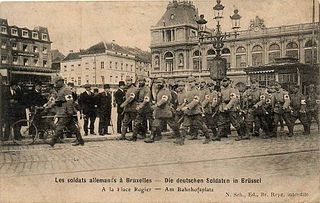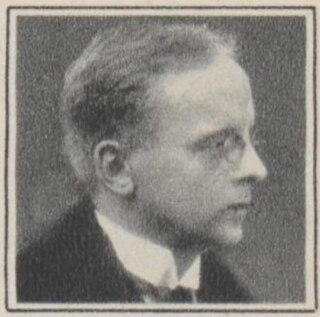Related Research Articles

Belgium is a country in Europe and member of major international organizations like the European Union and NATO which are both headquartered in Brussels, Belgium.

Prince Laurent of Belgium is the second son and youngest child of King Albert II and Queen Paola, and younger brother of King Philippe. Currently, he is 14th in the Belgian line of succession. He had been as high as third in line, but the constitution was amended in 1991 to extend an equal right of succession to women, putting him behind his sister, Princess Astrid, and her descendants.

The Flemish Movement is an umbrella term which encompasses various political groups in the Belgian region of Flanders and, less commonly, in French Flanders. Ideologically, it encompasses groups which have sought to promote Flemish culture and the Dutch language as well as those seeking greater political autonomy for Flanders within Belgium. It also encompasses nationalists who seek the secession of Flanders from Belgium, either through outright independence or unification with the Netherlands.

The Flemish Region, usually simply referred to as Flanders, is one of the three regions of Belgium—alongside the Walloon Region and the Brussels-Capital Region. Covering the northern portion of the country, the Flemish Region is primarily Dutch-speaking. With an area of 13,626 km2 (5,261 sq mi), it accounts for only 45% of Belgium's territory, but 58% of its population. It is one of the most densely populated regions of Europe with around 500/km2 (1,300/sq mi).

Jan Frans Willems was a Flemish writer, and the father of the Flemish movement.

The Kingdom of Belgium has three official languages: Dutch, French, and German.

Robert Herman Alfred de Foy CBE was a Belgian magistrate who served as head of the State Security Service during the Nazi occupation of Belgium. His conduct in that role is the subject of considerable historical debate, though after the Second World War, he returned to his pre-war positions, was decorated as a Grand Officer of the Order of Leopold II, and was honoured by the State of Israel as a Righteous Among the Nations.
The Walloon Movement traces its ancestry to 1856 when literary and folkloric movements based around the Society of Walloon language and literature began forming. Despite the formation of the Society of Walloon Literature, it was not until around 1880 that a "Walloon and French-speaking defense movement" appeared, following the linguistic laws of the 1870s. The movement asserted the existence of Wallonia and a Walloon identity while maintaining the defense of the French language.
The partition of Belgium is a hypothetical situation, which has been discussed by both Belgian and international media, envisioning a split of Belgium along linguistic divisions, with the Flemish Community (Flanders) and the French-speaking Community (Wallonia) becoming independent states. Alternatively, it is hypothesized that Flanders could join the Netherlands and Wallonia could join France or Luxembourg.

The Belgian Comic Strip Center is a museum in central Brussels, Belgium, dedicated to Belgian comics. It is located at 20, rue des Sables/Zandstraat, in an Art Nouveau building designed by Victor Horta, and can be accessed from Brussels-Congress railway station and Brussels-Central railway station.
The mass media in Belgium is characterized by its diversity due to the linguistic divide in the country.

The Wire of Death was a lethal electric fence created by the German military to control the Dutch–Belgian frontier after the occupation of Belgium during the First World War.

The German occupation of Belgium of World War I was a military occupation of Belgium by the forces of the German Empire between 1914 and 1918. Beginning in August 1914 with the invasion of neutral Belgium, the country was almost completely overrun by German troops before the winter of the same year as the Allied forces withdrew westwards. The Belgian government went into exile, while King Albert I and the Belgian Army continued to fight on a section of the Western Front. Under the German military, Belgium was divided into three separate administrative zones. The majority of the country fell within the General Government, a formal occupation administration ruled by a German general, while the others, closer to the front line, came under more repressive direct military rule.

The Reichskommissariat of Belgium and Northern France was a Nazi German civil administration (Zivilverwaltung) which governed most of occupied Belgium and northern parts of occupied France in the second half of 1944 during World War II.

Johan Decavele is a Belgian historian and archivist who worked as head of the Culture Department of the City of Ghent. He has mainly published on the history of Ghent and of the Reformation. He contributed to the Algemene Geschiedenis der Nederlanden, Dictionnaire d'histoire et de géographie ecclésiastiques, Monasticon belge, The Golden Delta of the Low Countries and The Oxford Encyclopedia of the Reformation.

Belgian heraldry is the form of coats of arms and other heraldic bearings and insignia used in the Kingdom of Belgium and the Belgian colonial empire but also in the historical territories that make up modern-day Belgium. Today, coats of arms in Belgium are regulated and granted by different bodies depending on the nature, status, and location of the armiger.

Josse-Émile van Dievoet was a Flemish politician and lawyer. He served as Belgian Minister of Justice.

Lucien Leopold Joseph Jottrand was a Belgian-Walloon lawyer, politician, progressive Flamingant and Pan-Netherlander. He was member of the National Congress of Belgium shortly after the de facto independence of Belgium and held a unique position in the young Flemish Movement.
References
- ↑ Koninklijke Biblotheek. Belgisch Dagblad
- 1 2 Lancken Wakenitz, Oscar H. von der, and Michaël Amara. Gouverner en Belgique occupée: Oscar von der Lancken-Wakenitz - rapports d'activité 1915 - 1918 . Bruxelles [u.a.]: Lang, 2004. pp. 280-281
- ↑ Schepens, Luc. Albert Ier et le gouvernement Broqueville, 1914-1918: aux origines de la question communautaire . Paris: Duculot, 1983. p. 193
- ↑ Leroy, Marie. La presse belge en Belgique libre et à l'étranger en 1918 . Louvain: Nauwelaerts, 1971. p. 15